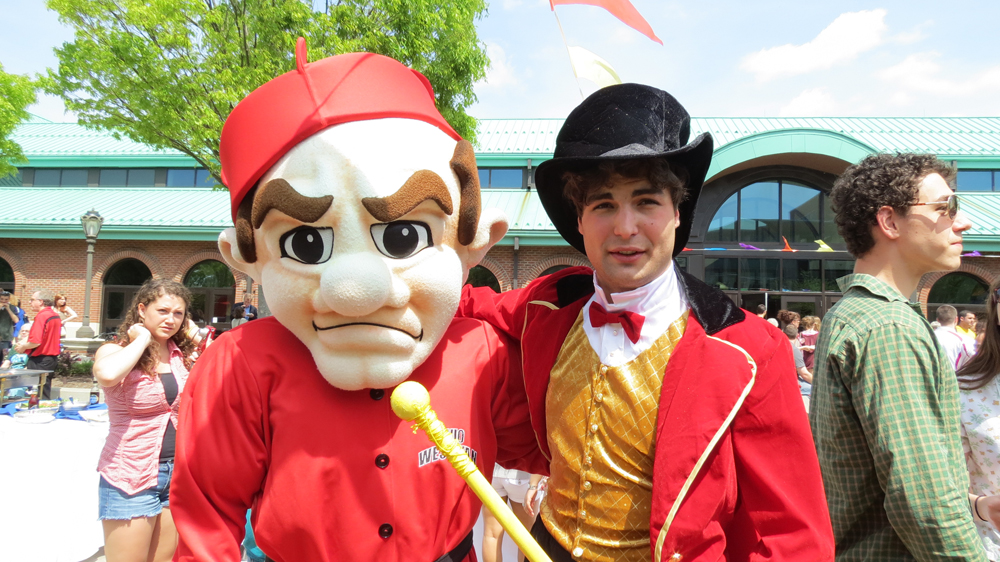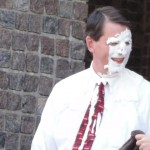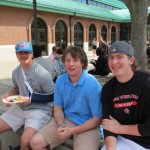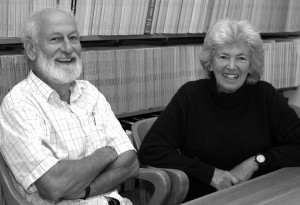By Natalie Duleba
Photo and Copy Editor
Daly Walker ’62, came to campus last week to read from his award-winning collection of short stories, “Surgeon Stories.”
Walker is the first speaker of the Writers & Poets Lecture Series, and took place in the Bayley Room last Thursday afternoon.
Walker is both a Vietnam War veteran and an experienced general surgeon. “Surgeon Stories” is his first published collection of short stories, but his essay and stories have been published in literary magazines for many years.
Bob Olmstead, professor of English and published author, introduced the lecture and admired Walker’s life and talents as a writer.
“I sort of think of today’s writer as one of those kind of old-fashioned writers who lived an extraordinary, fascinating, I’d say dangerous life, and then somehow had the wherewithal, the talent, the skill to write it down, to fictionalize it,” Olmstead said.
Walker has retired from medicine, according to his website, but had a long career as a surgeon, both in foreign countries and domestically in Columbus.
He said his experience as a doctor gave him a rich source to draw from for his short stories.
“Every operation I performed was a short story in itself,” he said. “There’s always a protagonist, not necessarily the surgeon but sometimes, it can be the patient or the family member of the patient. There’s rising action and the epiphany during the surgery and falling action afterwards.”
Walker counts himself among physician writers of history. Anton Chekov is his favorite physician writer, and the one that has had the most influence over Walker’s own writing. He said it’s natural for a physician to turn to writing, as a physician is present at the most dramatic times of the human life.
“They are privy to peoples’ lives when they are the most vulnerable and probably the most interesting: birth, death, injury,” he said.
Walker has expressed this opinion before in previous interviews, as he did with Margaret-Love Denman and Barbara Shoup in “Story Matters.”
“Patients come to you when they are the most vulnerable, when they are hurting,” Walker said. “They want to trust you and open up to you. That is great material to write about.”
Not only this, but doctors possess a keen sense of observation, a skill that Walker attributes to a good writer. He advised writers, especially young writers, to hone their observational skills in order to become better at their craft.
The short story Walker read from his collection, “I am the Grass,” tells the tale of a Vietnam War surgeon who returns to the country to perform charitable surgeries on disfigured children.
This story, as well as the other story depicting war, was written so Walker could come to terms with his own part in Vietnam as a war surgeon.
However, these stories are not the only ones that hold truth in their fiction.
“There’s a kernel of myself in each story,” Walker said. “They are a collage of my memory, my experience.”
While his writing got out to a slow start, “Surgeon Stories” having been 25 years in the making, he said that his time at Ohio Wesleyan helped him decide what to do in life.
“My liberal arts education shaped my life in a lot of different ways, and continues to do so,” Walker said.
After the reading, those in attendance could purchase a copy of the collection and have Walker sign it for them. This was followed by a special in-depth question section with Walker for an hour, affording students and faculty to get a deeper look into Walker as a writer, a doctor and a person.
The next speaker in the Writers & Poets Lecture Series is poet Rick Mulkey, who will be on campus Sept. 28 at 4:10 p.m. in the Bayley Room.




